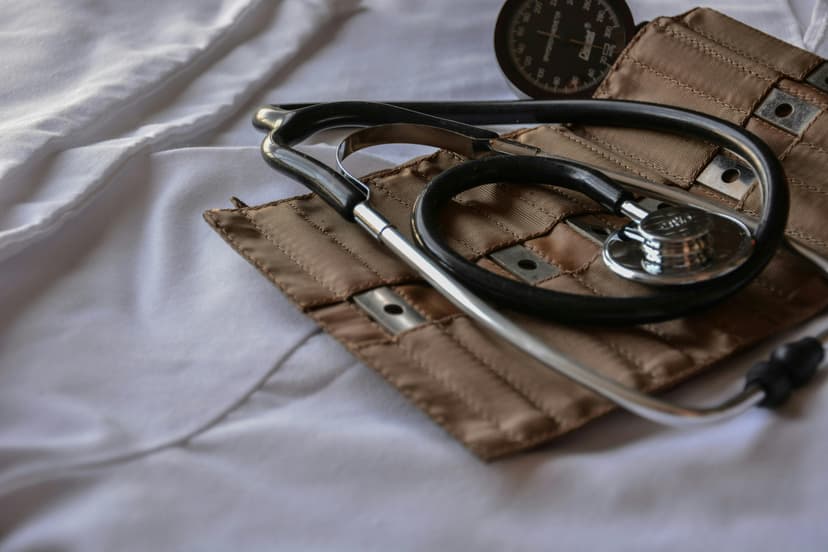Gap Year Before Medical School: Pros & Cons, Timeline, and How to Make the Most of It
Considering a gap year before medical school? Learn about the benefits, how it can boost your medical school application, and ways to gain valuable clinical experience, improve your MCAT score, and save money.
Posted July 1, 2025

Join a free event
Learn from top coaches and industry experts in live, interactive sessions you can join for free.
Table of Contents
Taking a gap year before medical school is a decision that many aspiring medical students choose, whether to build experience, improve their application, or gain clarity on their motivations. This article explores the benefits and drawbacks of taking a gap year, offers a practical timeline, and provides actionable tips to make the most of this important year.
What Is a Gap Year Before Medical School?
A gap year before medical school refers to the time between completing the third year of undergraduate studies and starting medical school. During this year, students may focus on enhancing their medical school applications, gaining more relevant experience, improving their Medical College Admission Test (MCAT) scores, or simply taking a break from academics.
Taking a gap year can be a strategic move, giving students time to strengthen their application materials and gain valuable experience that will make them stand out during the medical school admissions process. It also offers pre-med students a chance to refresh mentally, so they’re fully prepared to tackle the rigors of medical school when the time comes.
Should You Take a Gap Year?
Ultimately, the decision to take a gap year before medical school is a highly personal one. It can be a valuable period for gaining experience, improving your qualifications and medical experience, and ensuring that you’re prepared mentally and financially for the challenges of medical school. However, it requires careful planning, discipline, and a clear strategy to make the most of your time.
Gap Year Before Medical School Statistics
In the past, it was rare for students to take a gap year before medical school. Most applicants followed a straightforward path, moving directly from undergraduate education into medical school. However, recent trends show that more and more students are opting for a break between their bachelor’s degree and medical school.
Statistics from the American Association of Medical Colleges (AAMC) reflect this growing trend in medical programs. According to the AAMC’s Matriculating Student Questionnaire, over 60% of incoming MD students in 2017 reported taking at least one gap year before starting medical school. This shift highlights the increasing recognition of the benefits of a gap year, from gaining valuable clinical experience to focusing on personal growth and improving application materials.
The trend is not just limited to traditional students. Both traditional and nontraditional premed students are now more likely to take time off, for personal reasons, whether to improve their MCAT score, work in the medical field, or explore other interests. This shift in admissions patterns shows that a gap year is becoming less of an exception and more of a standard option for future medical students, reflecting the competitiveness and varied requirements of med schools.
Pros of Taking a Gap Year Before Medical School
1. Enhance Your Medical School Application
A gap year can provide a valuable opportunity to get research experience and bolster your medical school application in several ways:
- Improve your MCAT score – A common reason students opt for a gap year is to retake the MCAT exam if their initial score doesn’t meet the cutoff for their desired medical schools. If you’re not satisfied with your score, having a year to dedicate to focused MCAT prep can make a significant difference.
- Gain clinical experience – Clinical experience is crucial for most medical school applicants. A gap year gives you time to accumulate hours working as a medical assistant, emergency medical technician (EMT), or medical scribe. These roles offer real-world experience, allowing you to observe medical procedures, work with patients, and gain a better understanding of the healthcare environment.
- Benefits of Clinical Experience:
- Demonstrates commitment to medicine.
- Improves your understanding of patient care.
- Strengthens your medical school personal statement.
- Helps build relationships with professionals who can provide strong recommendation letters.
- Benefits of Clinical Experience:
- Engage in research – Research is highly valued by many admissions committees. Taking a gap year allows you to work in a laboratory, help with medical or clinical research, or engage in projects related to public health or other areas of medicine. The experience gained can be included in your application materials and can even help you pursue a special master's program or similar post-baccalaureate opportunities.
- Types of Research:
- Basic science research: Conducting studies related to biology, chemistry, or other medical sciences.
- Clinical research: Working on studies that investigate patient care, treatments, or medical procedures.
- Public health research: Investigating broader health issues, including disease prevention and healthcare policies.
- Types of Research:
- Build your application portfolio – The extra time allows you to work on other parts of your med school application, such as writing a stronger personal statement or securing additional recommendation letters. With more time to reflect on your experiences, you can craft a more compelling narrative that connects your background and goals to your passion for medicine.
2. Focus on Personal Growth and Well-being
A gap year isn’t just about academics; it’s also a time for self-care and personal growth. Here’s some more research on how taking time off from school can benefit your mental and emotional well-being:
- Avoid Burnout: Before you start medical school, a gap year offers a chance to rest, recharge, and approach medical school with fresh energy. This is especially helpful for students who have been under pressure to maintain high grades and prepare for medical school throughout their undergraduate education.
- Better Mental Health: The stress of medical school admissions and the constant grind of undergraduate coursework can take a toll on mental health. A gap year provides time to focus on your mental health, engage in activities that promote well-being, and reduce anxiety before diving into medical school.
- Pursue Personal Interests: Whether it’s traveling, volunteering, or exploring hobbies, a gap year gives you space to pursue activities that can help you reconnect with your passions outside of academics. You may even find that these experiences enrich your understanding of healthcare and provide fresh perspectives on your future career in the medical field.
3. Financial Benefits
Medical school is expensive, and taking a gap year may help alleviate some of the financial pressure. Here’s how:
- Earn Money: You may be able to work full-time during your gap year in a medical setting, such as working as a hospital volunteer, medical scribe, or in other healthcare roles. This can provide a steady income to help pay for med school tuition and other expenses.
- Save for Medical School: Use the time to save for medical school. Many students take a gap year specifically to build their savings, which can reduce the amount of financial aid or student loans needed for medical school.
4. Develop a Stronger Resume
A gap year offers significant time off to develop skills and experiences that will set you apart from other applicants:
- Community Service: Engage in meaningful community service or public health projects. Whether you’re volunteering at local clinics or working in global health initiatives, these experiences can make your application stand out.
- Leadership Opportunities: Many gap year students use the time to develop leadership skills through roles such as mentoring, leading student organizations, or running health-related projects. Strong leadership skills are highly valued by admissions committees.
Take your preparation to the next level with a library of resources designed to help you succeed. Access example essays, resumes, application prep materials, and video courses—all curated by top coaches in the field.
Cons of Taking a Gap Year Before Medical School
While there are many benefits, taking a gap year comes with its challenges. Here are some other examples of some potential drawbacks:
1. Loss of Academic Momentum
After several years of intense academic focus, taking a break can make it harder for many applicants to get back into the academic mindset. Some potential issues include:
- Difficulty Adjusting: After spending a year away from academics, returning to the intense study schedule of medical school can be challenging and may cause you to lose momentum. For students already feeling academically fatigued, a gap year could worsen the feeling of being "out of practice."
- Knowledge Gaps: If you don't engage in additional coursework or continue with academic studies during the gap year, you might feel disconnected from the foundational knowledge you’ll need to succeed in medical sciences.
2. Complicated Admissions Process
The medical school application process is already complex. Adding a gap year to the mix can increase the pressure to keep track of deadlines, test scores, and application materials.
- Managing Applications: You will still need to manage your application timeline carefully, ensuring you don’t miss deadlines for your medical school applications. It's important to balance your work during the gap year with the task of submitting your med school application.
- Additional Testing: Some students retake the MCAT during their gap year, which adds more pressure to an already demanding application cycle. Without a clear study plan, the additional testing could add unnecessary stress.
3. Overwhelm and Uncertainty
For students who are eager to start their fourth year of medical school, the thought of delaying another year can feel overwhelming. Additionally, while a gap year can be a time for self-reflection, some students might feel unsure about how to spend their time productively. If you’re uncertain about the direction you want to take, you might feel like the year is wasted.
A Practical Timeline for Your Gap Year
Months 1-3:
- Apply for Jobs/Volunteer Opportunities: Start applying for positions like medical assistant, EMT, or medical scribe. These positions provide hands-on clinical experience that will strengthen your application.
- Set MCAT Preparation Goals: If you plan on retaking the MCAT, set a study schedule and take practice exams to assess where you need improvement.
- Work on Your Personal Statement: Use the time wisely to refine your personal statement. Reflect on your experiences and motivations for pursuing medicine, and start drafting ideas for your application.
Months 4-6:
- Start Clinical Work: Begin working in your clinical experience role. Aim for at least 1,000-2,000 hours of patient care experience by the end of the year.
- Take Additional Coursework: If your academic record needs strengthening, enroll in post-bacc programs or specific medical school prerequisites.
Months 7-9:
- Continue Building Experience: Keep working or volunteering, and start considering research opportunities or public health initiatives.
- Start Application Process: Prepare for your medical school applications by requesting letters of recommendation, finalizing your personal statement, and ensuring your application materials are ready for submission.
Months 10-12:
- Submit Your Applications: Ensure that your med school applications are submitted early enough to meet deadlines.
- Final MCAT Prep and Retake: If you plan to retake the MCAT, use the remaining months for targeted study and take the exam.
How to Make the Most of Your Gap Year
- Plan strategically – Approach your gap year with clear, measurable goals. Whether it’s improving your MCAT score, gaining clinical experience, or conducting research, ensure you have a roadmap to stay on track.
- Stay organized – Create a schedule for your gap year and stick to it. Keeping track of deadlines, applications, and research projects will ensure that you don’t waste valuable time.
- Pursue new interests – A gap year can be the perfect time to explore interests that could enhance your career in medicine. Whether it’s working on public health initiatives, learning new languages, or gaining international experience through medical missions, new experiences can offer fresh perspectives and add depth to your personal statement.
- Network and build relationships – Use this time to strengthen your professional network. Connect with mentors, professors, physicians, and others in the medical field. Having strong letters of recommendation from individuals who can speak to your skills and dedication can make a big difference in the admissions process.
- Focus on your well-being – Don’t neglect your physical and mental health during this year. Take time for self-care, whether it’s through exercise, mindfulness practices, or spending time with loved ones. A healthy, balanced mindset will set you up for success in the challenging years of medical school.
Key Takeaways
- Focus on strengthening your application by improving your MCAT score, gaining clinical experience, and refining your personal statement
- Gain valuable hands-on experience in the medical field through roles like medical assistan,t EMT, or medical scribe
- Save money for tuition by working full-time during your gap year to ease financial pressure when med school starts
- Take care of your mental health and recharge during your gap year to avoid burnout and be ready for the demands of med school
- Be intentional with your time-set goals, stay organized, and balance both academic and personal activities to make the most of your year
Get Expert Guidance with Medical School Admissions Coaches
An experienced coach can help you understand the admissions process, highlight your strengths, and build a strong, standout application. If you're ready to increase your chances of getting into medical school, consider working with an admissions coach to make your application as strong as possible.
Read these next:
- The Best 50+ Free Resources for the MCAT Exam
- How to Write a Powerful Personal Statement for Medical School
- The Ultimate Guide to the Medical School Application
- The Different Types of Medical Careers – and Which One is Right for You
- How to Succeed as a Yale Pre-Med
- The Best Medical School Extracurriculars for Admission
- Average MCAT Scores of the Top 50 Medical Schools
- Writing a Strong Medical School Update Letter for Admission
FAQs
How long is the gap year before you begin medical school again?
- A gap year before medical school is typically one year, but some students may choose to take longer, especially if they’re pursuing additional coursework or research.
Can I still get into medical school if I take a gap year?
- Yes, many medical students take gap years, and in some cases, it can strengthen your application by providing more relevant experience, improving test scores, and allowing for more thoughtful application materials.
What are some ways to spend a gap year before medical school?
- Common activities include working in clinical settings, engaging in research or public health projects, volunteering, preparing for the MCAT exam, and taking post-bacc or additional coursework.
How can I make sure my gap year isn’t wasted?
- Set clear, measurable goals, stay organized, and ensure you’re gaining relevant experience or knowledge that will enhance your med school application. Take time to reflect on your reasons for pursuing medicine and consider how your experiences can contribute to your long-term goals.
Will a gap in junior year really hurt my chances of getting into medical school?
- Not necessarily. Admissions committees typically look for applicants who are well-rounded, committed, and passionate about pursuing medicine. A gap year can be seen as a positive opportunity to gain experience or improve your application.
Browse hundreds of expert coaches
Leland coaches have helped thousands of people achieve their goals. A dedicated mentor can make all the difference.

















